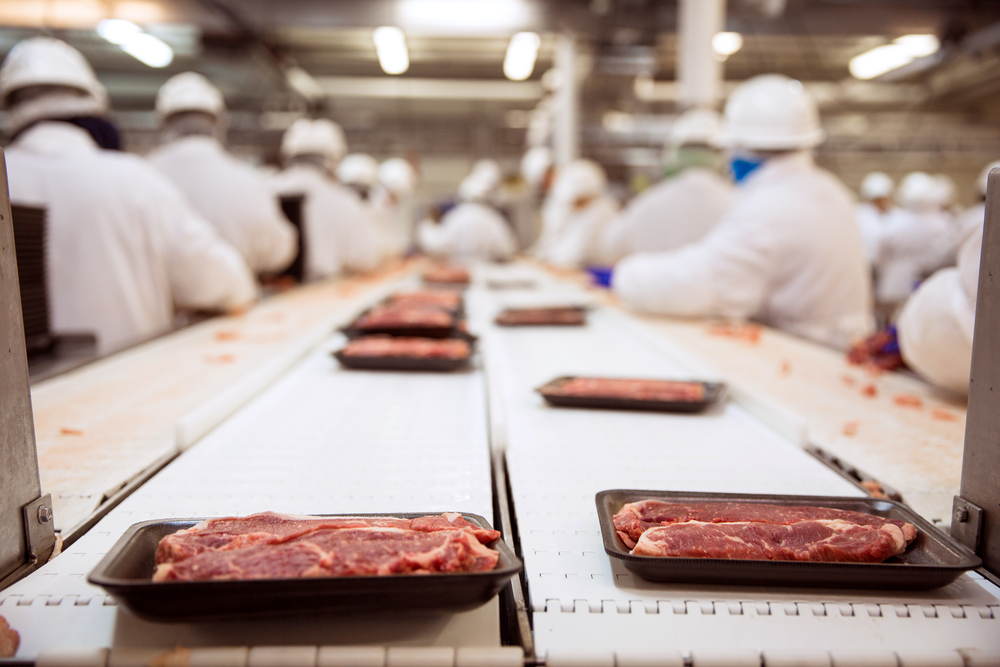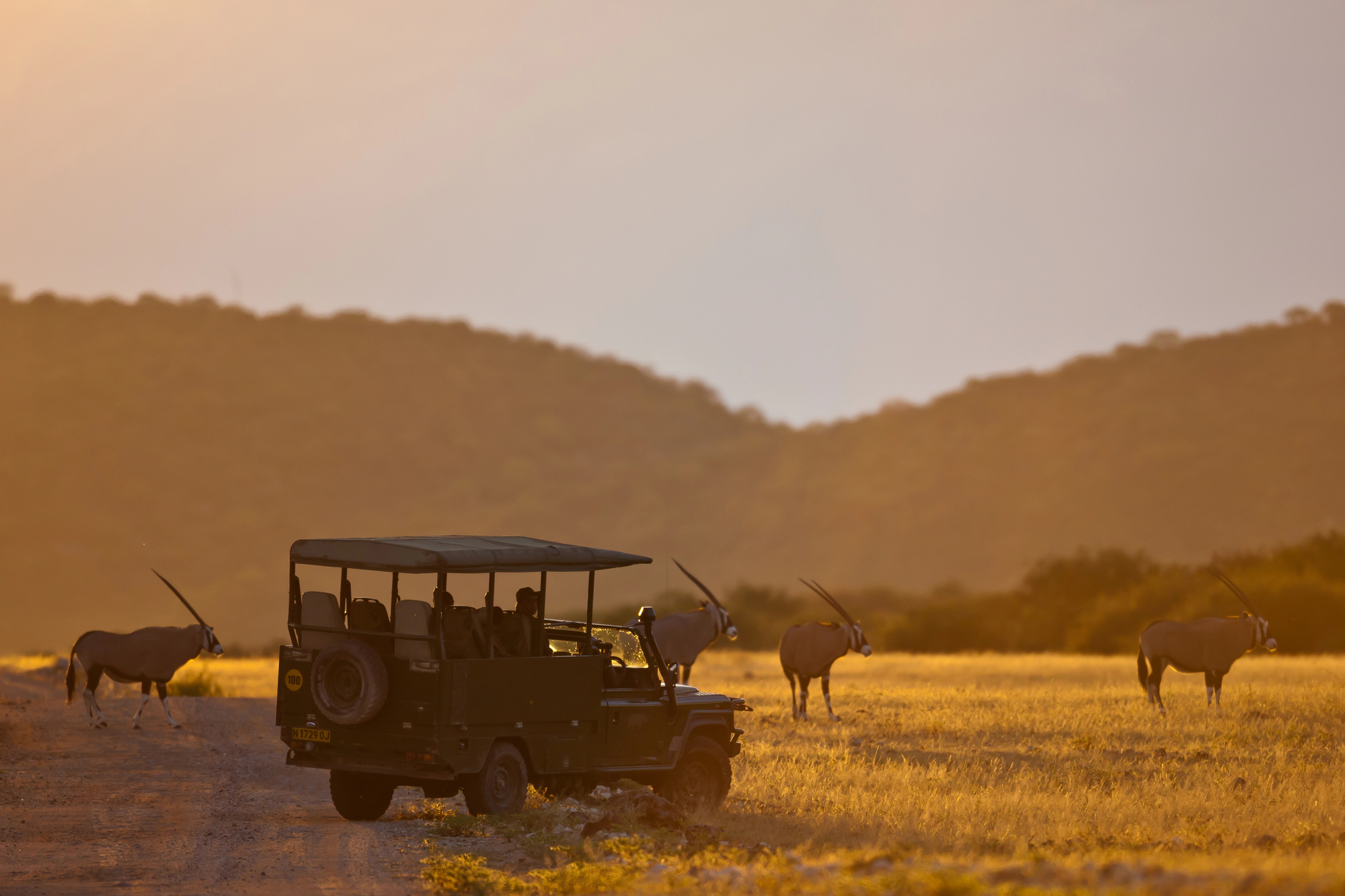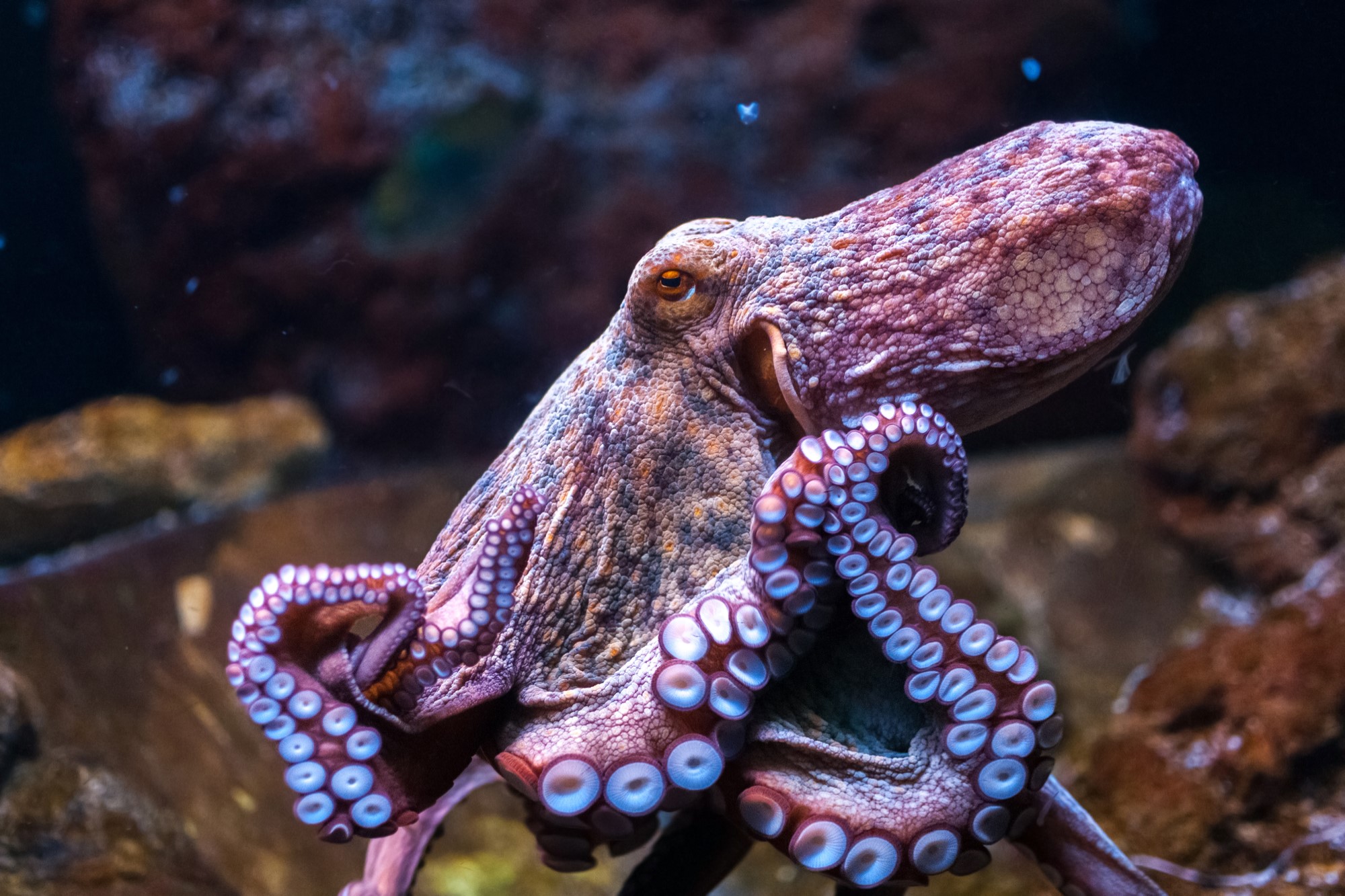COVID-19 and Food Justice

Despite the widespread effects of COVID-19 in the food industry — and the centrality of that industry to everyone’s existence — food and agriculture systems have not made their way to the forefront of the public conversation about the virus. Yet, the pandemic — and the federal government’s bungled response to it — reveals starkly how broken our food system is, and how standard responses to the virus threaten simply to maintain the status quo in the food system. The situation illuminates the inflexibility of a consolidated, industrialized food sector dominated by monopolistic companies, and the unethical consequences of such a system, whether under pandemic conditions or not. It highlights even more strikingly the untenable situation in which we find ourselves when it comes to industrialized animal agriculture.
Even as food waste has proliferated, for instance, with unpicked produce rotting in fields and eggs and milk deliberately destroyed, food banks struggled to keep up with the demand for their services. Food supplies have not been systematically redirected to meet the needs of the growing number of people experiencing food insecurity, but neither was production reduced or redirected. This issue is especially troubling with respect to animal agriculture, as farmers are forced to “depopulate” (i.e., cull) animals they cannot bring to slaughter, often using grisly methods. These disturbing problems are not merely the result of the pandemic, however, but are the natural consequence of conventional methods of raising, growing, producing, and distributing food. Closing or reducing the capacity of slaughterhouses threw off the chain of production because of the mechanical, systematic way animal products are produced: animals are continuously reproduced, bred to grow rapidly on a predictable, shortened schedule to maximize output, and raised in crowded confinement.
Our dependence on animals for food is also a direct contributor to the spread of the virus. Like bird flu, H1NI, SARS, MERS, West Nile Fever, Zika, Yellow Fever, and Ebola, which all have proven or suspected transmission via domesticated animals, SARS-CoV-2 (the virus that causes COVID-19) is a zoonotic disease that moves between humans and nonhuman animals. Although some of these diseases did not originate in domesticated animals, their spread is often amplified, in various ways, through humans’ close contact with them. In a recent report on preventing pandemics, the UN Environment Programme explained that, “The frequency of pathogenic microorganisms jumping from other animals to people is increasing due to unsustainable human activities. Pandemics such as the COVID-19 outbreak are a predictable and predicted outcome of how people source and grow food, trade animals, and alter environments.” Among the worrisome trends that the report addresses are increasing human demand for animal protein and unsustainable agricultural intensification, including factory farming. The UNEP recommends shifting from “short-term political responses to long-term political commitments to secure human, animal and environment health” as a way to reduce the risk of zoonoses.
A prime example of such a misguided and short-term political response to the pandemic’s effect on our food system is the Trump administration’s decision in April to invoke the Defense Production Act to force meat processing plants to remain open to “ensure a continued supply of protein for Americans.” Meat-processing plants rank among the top hotspots for COVID-19 and, to date, over 16,200 meatpacking workers have been infected with the virus and at least 86 have died. Not only is social distancing impossible given production speeds in such plants, but experts also hypothesize that normal working conditions in the plants encourage the spread of the virus. Despite continued assurances that workers’ lives and health are valued, this use of the DPA highlights the overall disregard for working-class, migrant, immigrant, and refugee workers that is a persistent feature of the food industry. Following this order, and receiving much less publicity, the USDHS removed limitations on the H-2B Visa program, making it easier for meat companies to hire guest workers. The United Food and Commercial Workers Union criticized both decisions as “a betrayal of America’s meatpacking workers, giving companies free pass to ignore safety.” The safety guidelines delineated by OSHA are voluntary and not enforceable, and companies are defying the state and local authority and law that could be used to protect workers, claiming that the federal mandate takes precedence. In addition, most people doing this work do not have the financial freedom not to return to work; the DPA order means that they can no longer utilize unemployment compensation, so they must choose to put their lives (and those of their families and members of their communities) at risk to make ends meet.
Designating meat-processing facilities as “critical infrastructure” through the DPA is a destructive decision, but is also a logical conclusion of the existing, exploitative system of agriculture and food production in the US, which involves farming so intensively as to deplete the soil, pollute the water, bolster antibiotic resistance, and harm the health of people in surrounding communities. Animals are treated as mere raw materials. Workers are devalued as replaceable and disposable, especially as the burden of farmwork shifted onto migrant laborers, people of color, and disempowered contract farmers. These kinds of exploitative relationships are at the heart of the system of industrialized, intensive agriculture because profit and efficiency, narrowly understood, are valued above all else. Through our food system, we have cultivated dependency on exploited labor, tortured animals, and powerful and monopolistic corporations, all in exchange for cheap, plentiful, and readily available food. The proliferation of COVID-19 outbreaks in meat-processing facilities is consistent with those values, revealing yet again that companies like Tyson are “… worried more about getting chicken on the shelves than the people who put the chicken on the shelf,” as one worker noted. While food corporations are adjusting to the new normal, they aim to go about business as usual by implementing testing regimes, which may foster the perception of safety in lieu of actually creating safe working conditions. But testing is not failsafe since it only identifies but does not prevent infection, and lag times as well as gaps between the administration of tests mean that workers could unknowingly be exposed to the virus before anyone realizes there’s a problem. Invoking the DPA to keep meat-processing facilities open thus clearly exposes the perverse logic of the dominant way of producing and consuming food.
Another looming global crisis, climate change, indicates how shortsighted and counterproductive it is to preserve the status quo with respect to food production and animal agriculture in particular. According to the UNFAO, animal agriculture is a significant driver of global climate change, contributing at least 18% of total global greenhouse gas emissions. By promoting the increased production and consumption of meat, the U.S. continues to ignore both the dangerous and intensifying consequences of climate change as well as the clear connections between animal husbandry and the spread of zoonoses. In fact, the frequency and transmission of zoonotic diseases are worsened by climate change: many disease vectors and the pathogens themselves tend to thrive in warmer, wetter climates, and in places where biological diversity is threatened. Thus, the more we depend on intensive animal agriculture for food, the more we commit ourselves to dangerous climate change, and, in light of both, the more likely we are to catalyze the outbreak of another deadly zoonotic disease like COVID-19. This risk is increased by both close and unnatural contact with animals as well as the changing environmental conditions brought on by climate instability. Yet, the approach of food companies and the federal government, along with many state governments, has been to uphold the status quo in our food system at all costs and, so, to declare that meat is so important that we will sacrifice human lives and climate stability to secure it.
The pandemic should be an occasion to call for changes to our food systems that genuinely bolster food security and protect human health by reducing reliance on a fragile, harmful, and overly centralized system of production. Yet, loosening the hold of industrialized animal agriculture on our system of food production is challenging because of the belief that meat is essential to both diet and the economy. It is unquestionable, however, that meat is not necessary, that there are various different sources of protein, and that alternative agricultural and food production enterprises could sustain the economy.
Still, we struggle to detach ourselves from the pervasive cultural narrative that we need meat. The standard American diet is synonymous with huge portions of meat, and many Americans consider a meal without it un-thinkable. This perception is unsurprising given that the USDA dietary guidelines do more to promote corporate interests than human health, and messaging campaigns funded by the government via check-off programs have been wildly successful in convincing Americans to increase consumption of animal products. Perhaps there’s no stronger evidence of the success of these efforts than the aforementioned use of the DPA, which fortifies the myth of the necessity of animal protein into law.
The pandemic has revealed our food and agricultural system to be cumbersome, unadaptable, unsafe, and unethical. The responses to the impact of COVID-19 on that system have been mere mitigation measures, simply shoring up the existing state of affairs. The current crisis, however, presents us with the opportunity to rethink how we relate to, produce, and consume food, and then to transform our food system radically. Such an examination should start with redefining what is truly “essential” regarding food and taking stock of all the costs of intensively raising animals for food. Meat, especially in the vast quantities produced in the US, is not essential. What is essential is a resilient, sustainable, and democratic food system that provides healthful food, offers safe and meaningful work, treats animals as sentient beings, and involves agricultural practices that conserve and sustain natural resources. The forms that such a system can take are myriad and no one agricultural model is a cure-all.
Likewise, in the face of global climate change, we must acknowledge that our real needs are radically different from how we have been accustomed to think of them. We need food systems that are flexible and responsive, that reduce greenhouse gas emissions, that foster human health, that cultivate ecological, biological, and socio-cultural diversity, and that restore environmental integrity, especially in anticipation of climate instability and the resultant serious environmental problems. The work of organizations like Soul Fire Farm, which not only farms in ecological regenerative ways that sequester carbon but also prioritizes racial justice through mentorship and care for the local community, is a model. Policy changes are also necessary to address structural injustice and support the work of such organizations. One key move is to redirect agricultural subsidies from agribusiness, especially commodity crops and animal agriculture, to farmers using carbon neutral and carbon negative practices.
The global pandemic has highlighted all the ways in which our current food system is failing: instead of pouring more resources into a harmful food system and bolstering the profits of big agribusiness, we need a food system that serves the interests of the people from farm and factory to the table.




